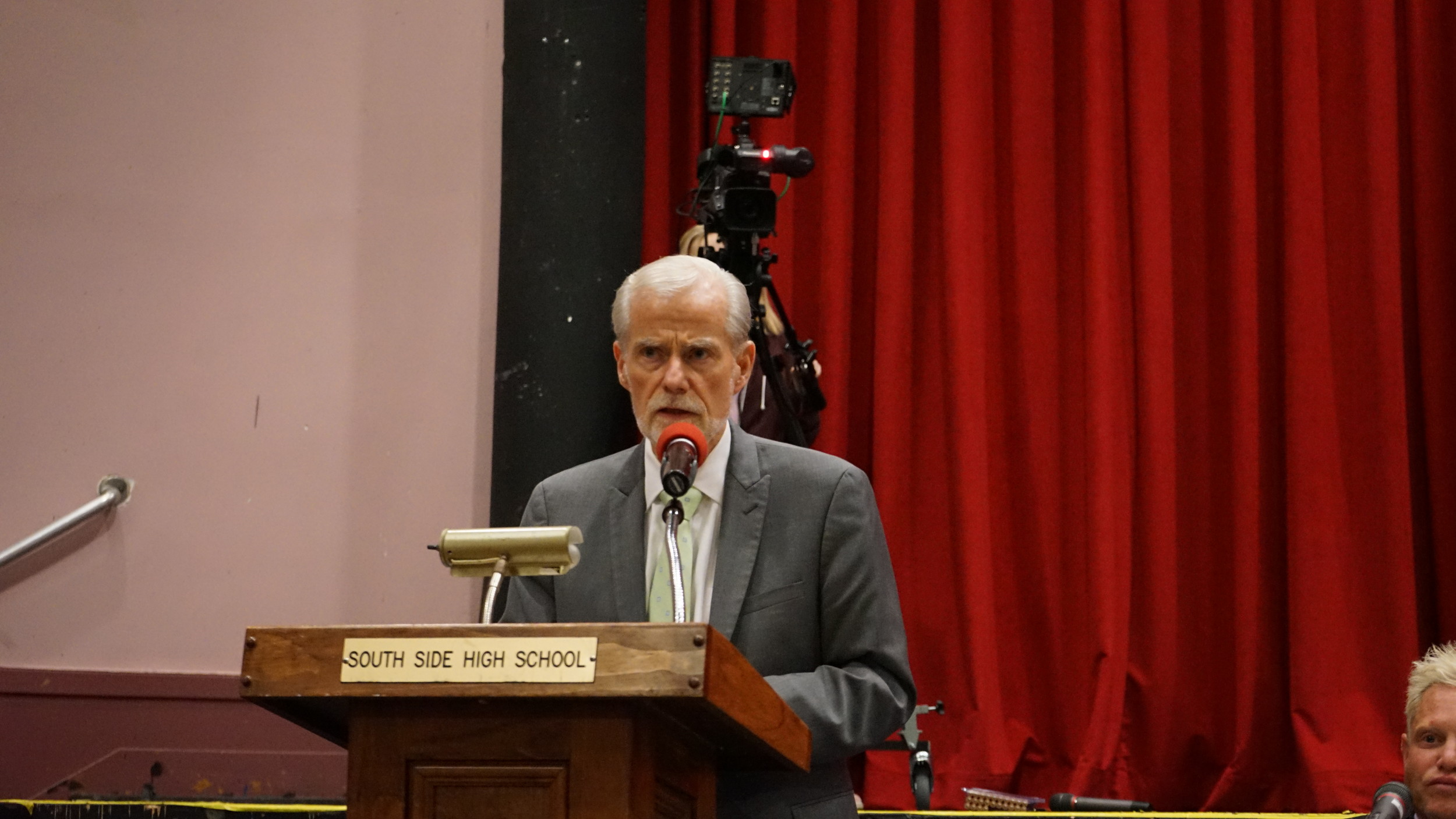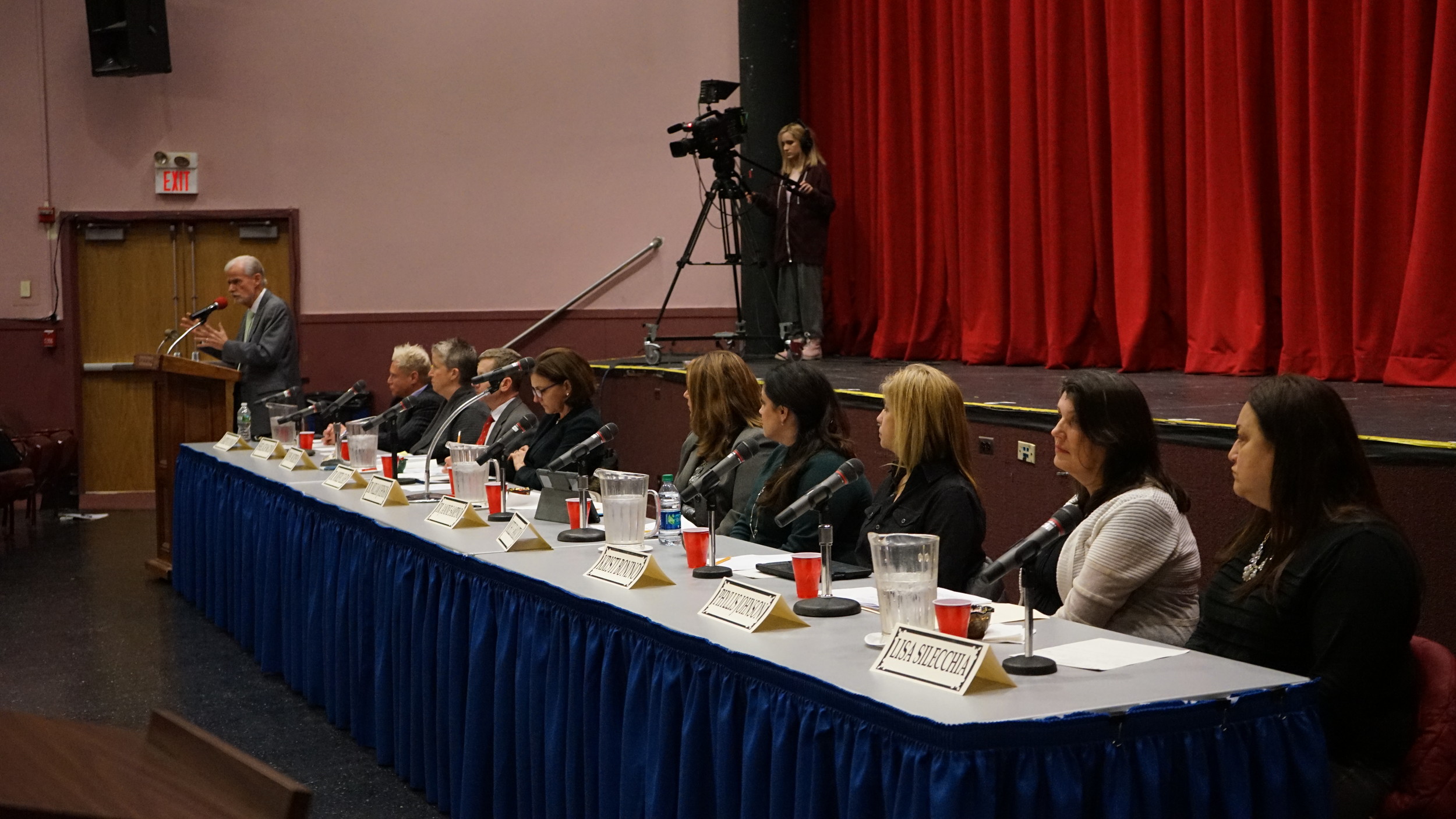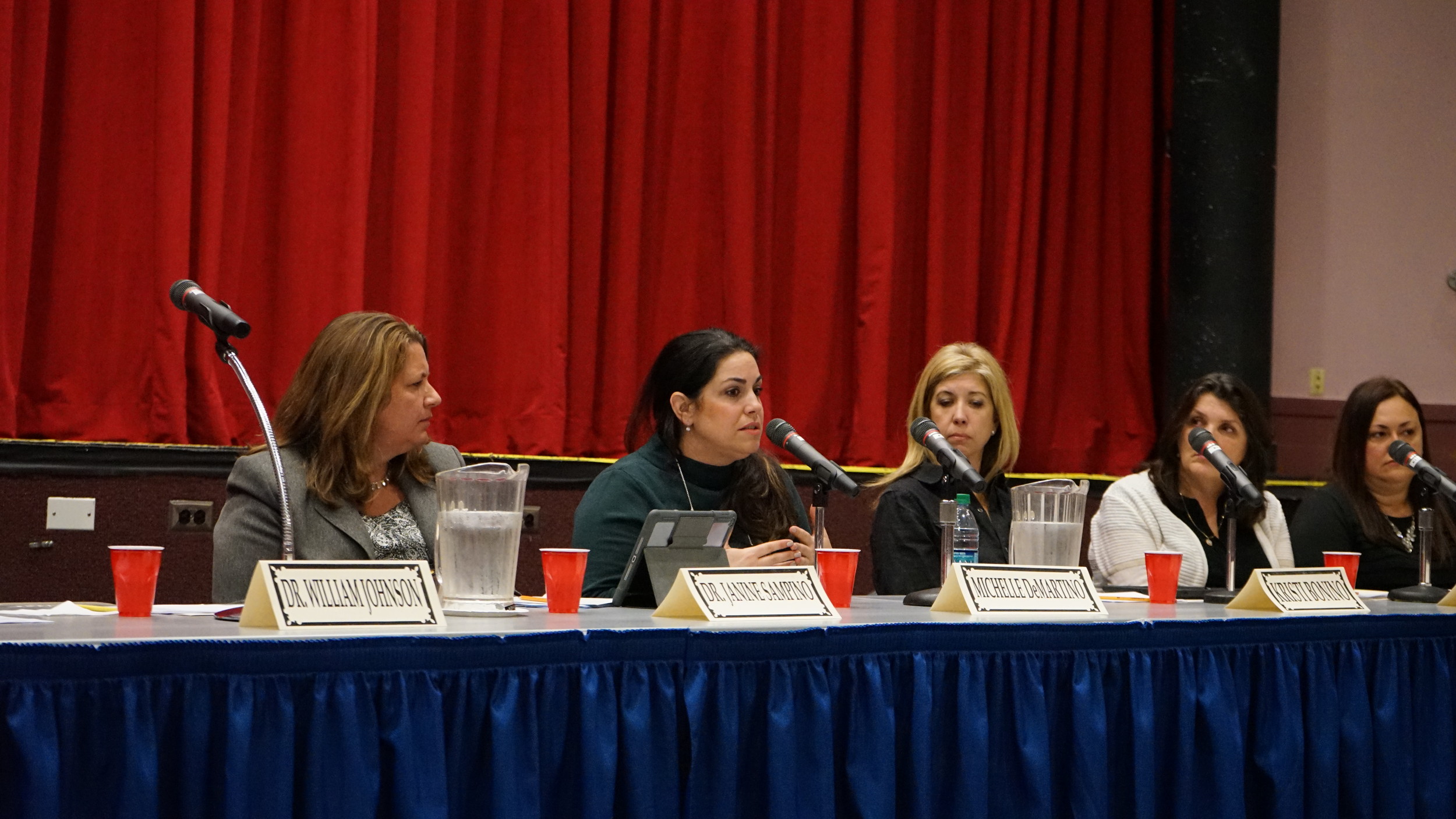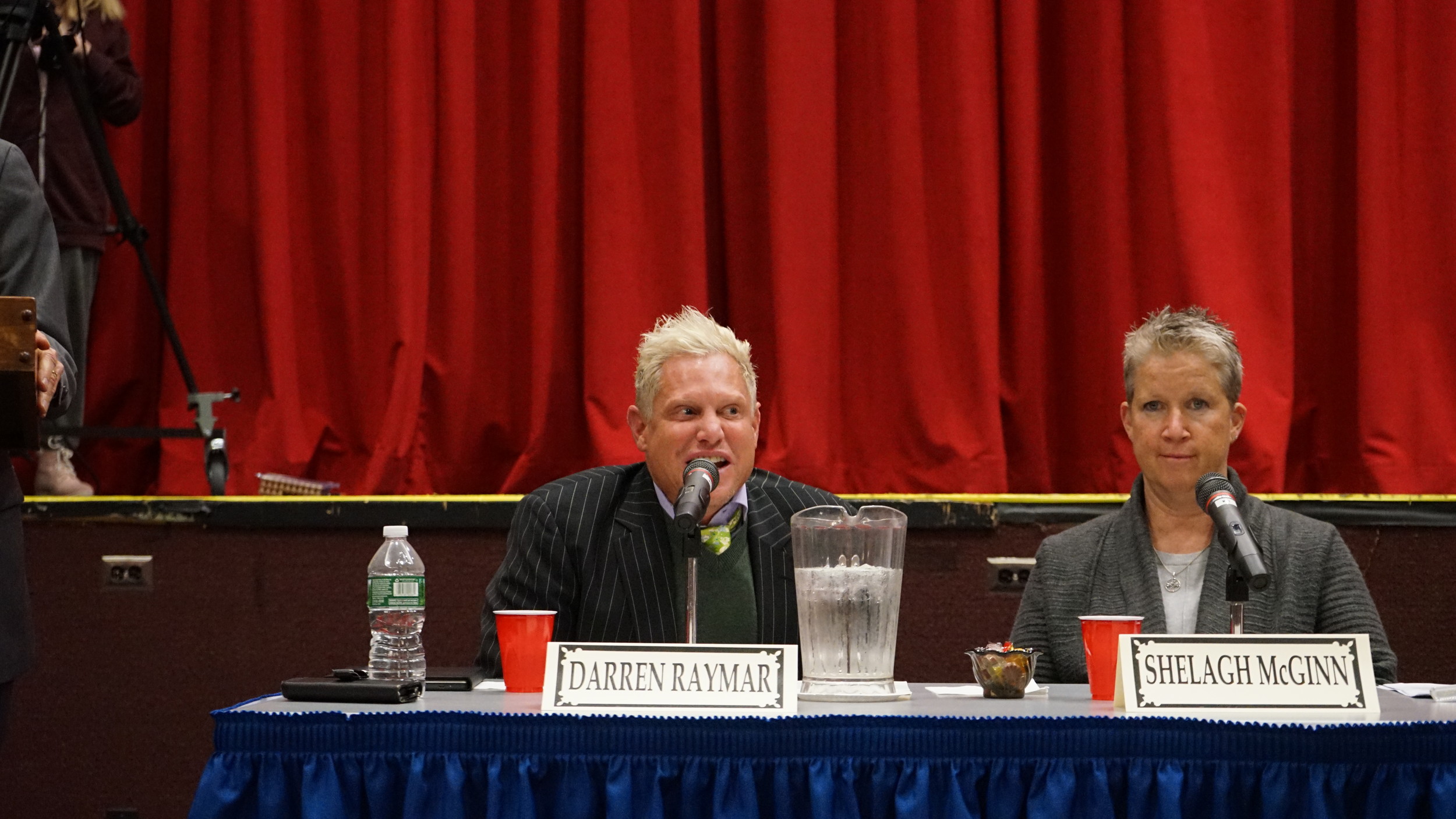Rockville Centre school officials and parents discuss Common Core at forum
It has been four years since New York state attempted its rollout of the Common Core standards and assessment protocols, and every year since then, school administrators and parents still meet to discuss what happens next with the beleaguered guidelines and tests, and what parents should anticipate going forward.
In the fourth such meeting in the village, school Superintendent Dr. William Johnson called together a forum of nine Rockville Centre school administrators and teachers in the South Side High School auditorium on Feb. 28 to give advice to confused parents and inform them of the latest developments regarding district and state curriculum and standards.
Speaking to a group of roughly 70 parents, Johnson said he hoped to outline what he described as “consistent change” in education policy at the state level for the past five to eight years and the challenges associated with it. “It’s tough for us as administrators and for families,” he said. “We really want to engage you in the conversation.”
Starting off the discussion, Johnson said he had heard from sources that the state, at the high school level, was considering raising the passing scores for the state math and English Regents exams from 65, to 75 or 80, but hoped that it wouldn’t happen as it could have “scary” results in regards to both local and state graduation rates.
Johnson moved on to discuss Common Core standards. “We embraced it,” he said about the new guidelines when they were rolled out. “We adopted the Common Core here in this school district, and in fact still support the Common Core set of standards.”
But he indicated that the standards portion of the Common Core guidelines could be improved and that the state, through state committees, was currently developing a revised version. According to him, the state plans to allow local districts to develop curriculum based on the revised standards in the 2017-18 or 2018-19 school year.
Common Core assessment tests for grades 3 through 8 have been a major sticking point of the protocols and most of the 90-minute-long forum was dedicated to discussing them. The status of the tests is currently in an awkward place according to Johnson and a number of other school officials.
Right now, districts are required to administer the tests but are barred from using the results. According to Johnson, the state is considering new and possibly electronic tests, but in the meantime the old tests are still being given. “The problem is we are transitioning from rather than transitioning to,” he said.
As a result, two years ago, the district implemented its own electronic assessment tests as an alternative and a means to continue collecting metrics on students since the results of the state assessments could not be used.
Johnson indicated that he believes the incoming state tests will resemble the district’s current electronic assessment tests, which were purchased from the Northwest Evaluation Association, or NWEA, which are given three times a for grades K through 5 and twice a year for grades 6,7,8.
Covert Elementary Principal Darren Raymar, who sat on the forum, said the NWEA test metrics were useful and that one major benefit was that the tests compared students’ scores to their own previous results, giving both them and teachers a good idea of areas that have improved and others that need work.
But, responding to a question by parent Anna Miller, Johnson admitted that the NWEA would be phased out once the state introduced its new tests in the coming years, as it would become redundant.
Still, the question of what to do with the current state assessment tests lingered. Many parents asked if their children should take them and if they would be penalized for opting out. In regards to punishment, Johnson said that students would not face any negative consequences if they opted out of taking the state tests.
However, he recommended that students take the largely defunct exams, if for no other reason than to prepare themselves for the high school Regents tests, which they must take in order to graduate with a diploma. “But also, the state should give us a test worth taking,” he said, emphasizing the apparent paradox of the situation.
Johnson said he believes the current tests were deemed unusable by the state because they attempted to assess both students and teachers at the same time. “They tried to do more than they should have been designed for,” he said.
Regardless of the outcome of the state’s Common Core protocols, Raymar insisted that the district would maintain its own high standards of education regardless of standardized exams. “We’ve never been a district that teaches to a test.”

 44.0°,
Mostly Cloudy
44.0°,
Mostly Cloudy 











